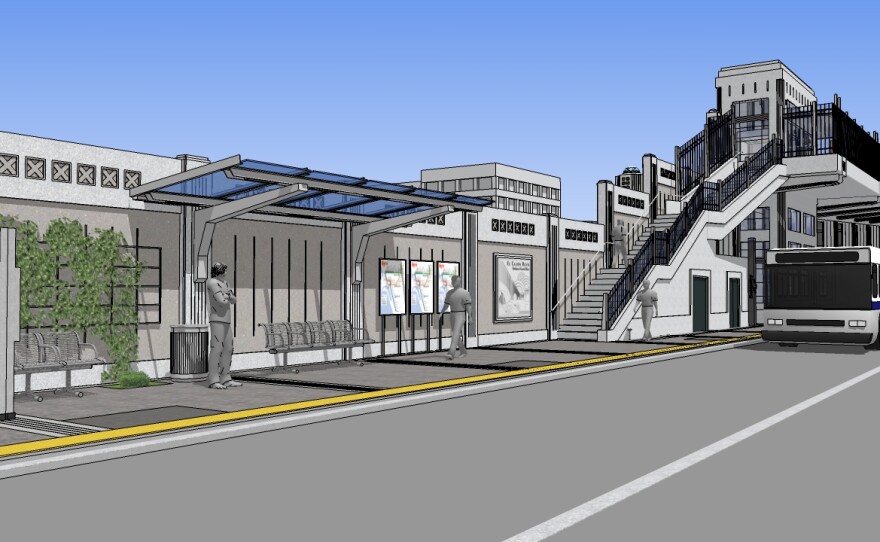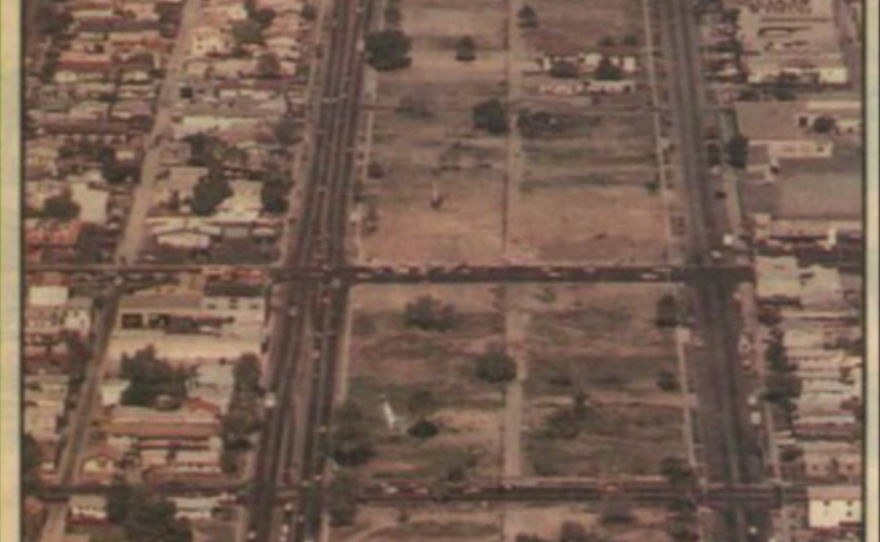Caltrans broke ground Wednesday on a project more than three decades in the making. Residents, elected officials and transportation planners gathered on the El Cajon Boulevard overpass to celebrate.
In 2017, elevators will take passengers from the overpass down to Interstate 15 below to board buses.
Transportation officials promised the project, called Centerline, to City Heights residents in the 1980s as reparations for extending the freeway through their neighborhood.
Christopher Castor has lived in the area for 35 years and described how the overpass once looked.
"This used to be Allen Kent Furniture, a Kentucky Fried Chicken, and the original Nicolosi's Italian Restaurant," Castor said. "(Caltrans) started buying out the property, but the houses sat empty here for, god, 10, 15 years 'til they finally started building this freeway back in 1998."
Caltrans dug out a trench for the freeway along 40th Street. Castor said he and his son would ride their bikes in it before the cement trucks came.
But residents largely considered the project a deep gash that split their community in two. They demanded a park and the freeway-level bus stops at El Cajon Boulevard and University Avenue.


Maria Cortez has been fighting for the Centerline project since its inception and said residents have had to overcome bureaucratic hurdles and doubts from elected officials and the agencies involved.
"Yes, there were times when people were saying, 'Oh, you know, that's never going to happen. It's just a dream,'" Cortez said, wearing a faded Centerline T-shirt residents had made 35 years ago. "But dreams and visions are made to come true."
Cortez, who has lived in City Heights for 45 years, said her husband planned to take Centerline to work when it opened. But he retired before it came to fruition.
"The way I look at it right now, our future, our kids are going to be the ones that will be able to take this to go to better jobs, to better themselves," Cortez said.
The idea behind the bus stops is to get passengers to job centers in downtown and North County as quickly as possible. Currently, buses have to exit the freeway and stop at traffic signals before they pick up passengers.
On Centerline, the trip from City Heights to downtown is expected to take 8 minutes, said SANDAG Vice Chair and County Supervisor Ron Roberts.
It's the first bus stop of its kind in the region, said local Caltrans Director Laurie Berman.
But speakers at Wednesday's ceremony focused on the community movement that made it happen. They said that's the model worth replicating in other neighborhoods.
"This is truly an urban monument to citizen activism," said Stephen Russell, the outgoing board president for the City Heights Community Development Corporation. "It's a model for rectifying previous environmental and economic injustice."







